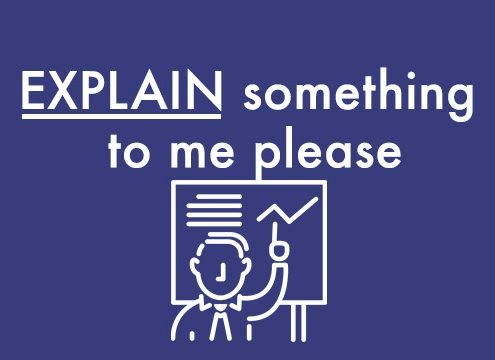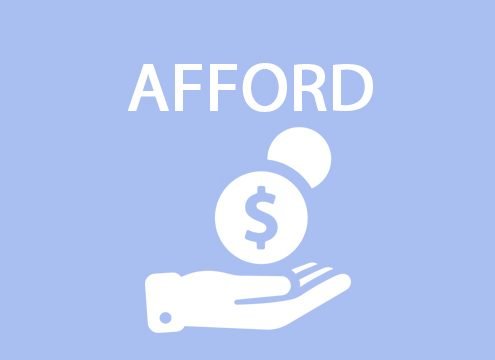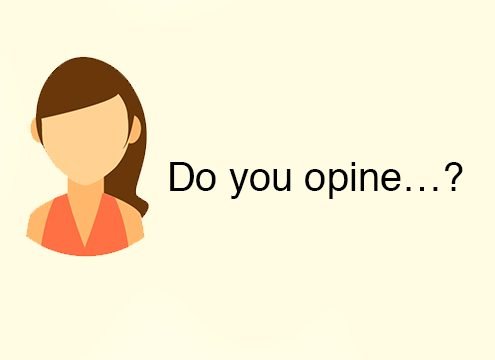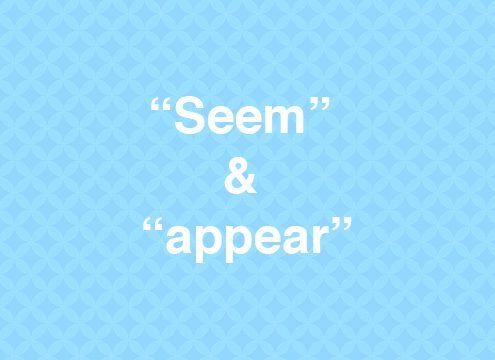
Explain something to me please
The verb explain is used when we would like make something clear or easy to understand, by describing or giving information about it (para aclarar,
Si quisiera mejorar o aprender inglés, este blog podría ser su ayudante.
Cada semana algo nuevo se publica. Si quisiera recibir una notificación de un tema nuevo por correo electrónico solo tiene que suscribirse a nuestro blog desde el formulario del final de la página. Ir al formulario.
Su correo electrónico sería guardado de manera confidencial para que ninguna otra persona pueda usarlo.
El blog será en inglés, y únicamente damos explicaciones mínimas (en español) para aclarar algo, para traducir algo que podría ser difícil, o para acelerar su entendimiento.
El autor es Aimee, directora y una especialista en educación hablante nativa.

The verb explain is used when we would like make something clear or easy to understand, by describing or giving information about it (para aclarar,

To botch (chafallar) something is to do a bad job, and a person who does a bad job is a “botcher”, that is, an incompetent

Courthouse and courtroom are “Americanisms” (americanismos). You may have heard these two words on American films or police dramas. British English is different. The English

“Always” is an adverb. Adverbs usually go before the verb. Study these examples: Mr. Sanchez always drinks champagne for breakfast. Mr. Rivera always seems confused.

Pink is a colour (rosa) and it is sometimes used to describe your cheeks – pink cheeks (sonrosados). However, this article concerns “pink” as an

A Janus word is two-faced (de dos caras), that is, a word that has opposite meanings. Strange is it not? A little history: the word

Some adjectives and adverbs do not play by the rules (no acatan las normas). The English play by the rules (of course), but we make

For a review of the basic use of like – and its common mistakes. Now we examine its declensions. First, as a noun. There six

“Afford” has the following uses: to have the money to pay for something, to spare (escatimar) something, to risk (something) or to provide something, to

Yes you do. To “opine” (opinar) is to give, hold or express an opinion. It is a transitive verb and hence (por lo tanto) it

In English we use seem (parecer) and appear to give information about something that may be true. There are two sentence structures you can use:

First is an adjective and “firstly” is an adverb (and the same can be said for “secondly”, etc.). Adverbs say something about a verb. Here

Esta web utiliza cookies para que podamos ofrecerte la mejor experiencia de usuario posible. La información de las cookies se almacena en tu navegador y realiza funciones tales como reconocerte cuando vuelves a nuestra web o ayudar a nuestro equipo a comprender qué secciones de la web encuentras más interesantes y útiles.
Las cookies estrictamente necesarias tiene que activarse siempre para que podamos guardar tus preferencias de ajustes de cookies.
Si desactivas esta cookie no podremos guardar tus preferencias. Esto significa que cada vez que visites esta web tendrás que activar o desactivar las cookies de nuevo.